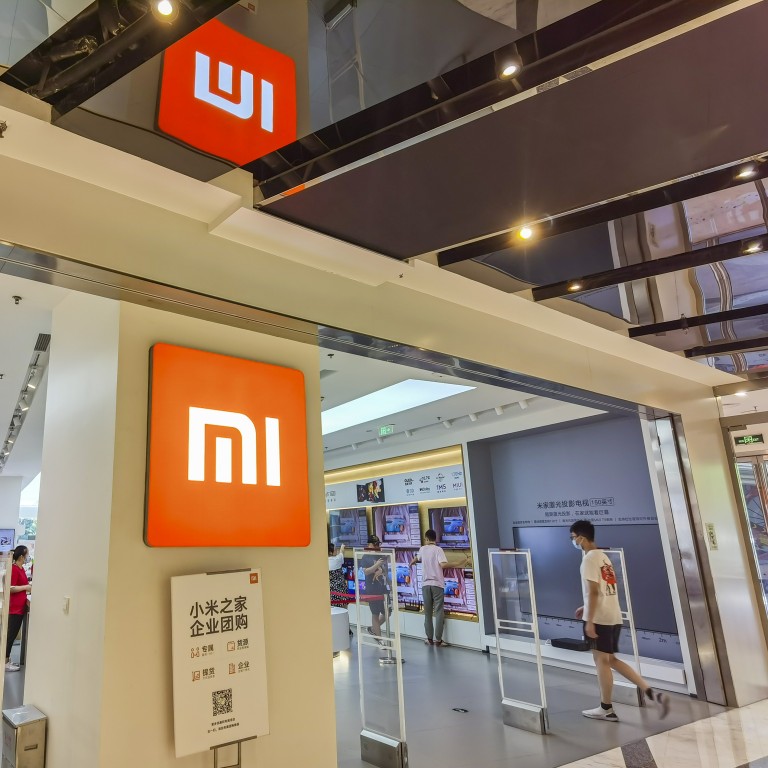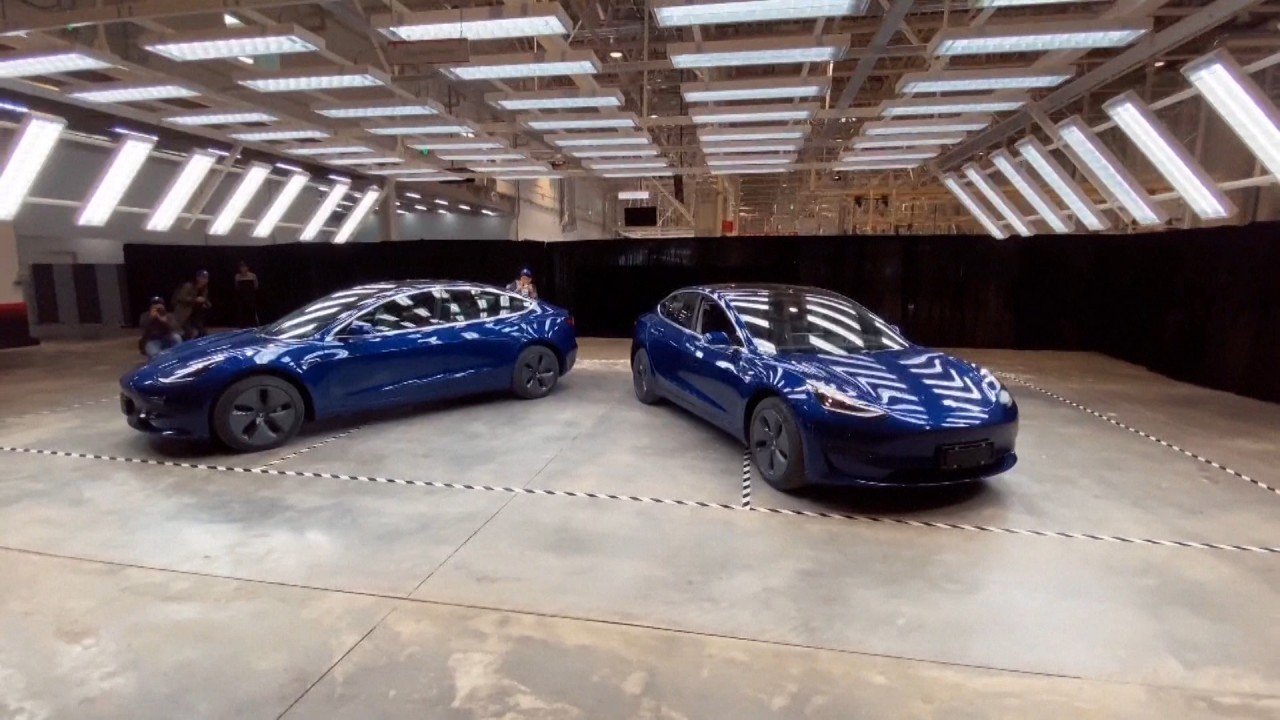
Xiaomi founder Lei Jun says his company’s first electric car will be an SUV or a sedan, priced between US$15,000 to US$45,000
- Xiaomi’s billionaire CEO Lei Jun unveiled more details on the company’s new EV venture during a Douyin session
- Xiaomi’s targeted price range is considered consumer-friendly, said analyst
Xiaomi’s first vehicle will be either a sedan or an SUV costing between 100,000 yuan and 300,000 yuan (US$15,300 to US$45,900), said the Chinese smartphone giant’s co-founder and CEO Lei Jun on Tuesday, shedding light on the new Tesla challenger’s multibillion-dollar venture into electric vehicles (EV).
Lei revealed the details during a live-streamed video session on Douyin, the Chinese sibling app of TikTok, to promote Xiaomi products, which came a week after he announced the company’s foray into smart cars.
“The first car will definitely not be a sports car or a motorhome; it’d be either a sedan or an SUV,” Lei said, adding that the plans are still at an early stage and the details are still being worked out.

According to Lei, most internet users polled by Xiaomi preferred that the company release its future cars under the Xiaomi brand. Around 45 per cent voted for Xiaomi to produce a sedan ; 40 per cent chose an SUV.
Two-thirds of respondents wanted Xiaomi to produce cars selling at more than 100,000 yuan, while only 8 per cent of respondents voted for a price of over 300,000 yuan.
“People want Xiaomi to make mid-tier to high-end EVs,” Lei said.
Xiaomi’s entry into the EV market had sparked hopes that the company, which started as a budget smartphone brand, would produce affordable cars catered to price-conscious consumers. Many internet users pointed to Xiaomi’s first smartphone, the 1,999 yuan Mi 1 launched in 2011, which was marketed towards penny-pinching youth.
“19,999 yuan. Make it the first car for young people,” a netizen wrote in a popular comment under Lei’s poll.
The price range suggested by Lei is considered the friendliest to the largest cohort of EV consumers, according to Li Lianfeng, research director at market intelligence firm IDC.
Under China’s latest policy on new energy vehicles (NEVs) announced last April, customers are only entitled to state subsidies when they buy passenger cars priced less than 300,000 yuan. That means higher-end EV models, such as the 800,000-yuan Tesla Model S or the 368,000-yuan NIO EC6, are excluded.
While current players in the EV market have focused mostly on either the high or low end of the market, “the most popular models in the Chinese market are those between 100,000 and 250,000 yuan; they have the largest sales volume,” said Li.

Xiaomi still faces significant challenges from established competitors across the market, however.
Tesla, which entered the Chinese market in 2013, currently dominates the country’s premium EV sedan market. Last year, it sold 140,000 units of its bestselling model, the Model 3 with a starting price of 250,000 yuan, according to market research firm Canalys.
On the other end of the price spectrum, Chinese carmaker Wuling Motors’ HongGuang Mini EV, which costs only about 30,000 yuan, was China’s second-bestselling EV model, with 119,000 units sold last year.
“With the premium brands going downward to reach more consumers, and lower-end brands improving their intelligent functions, there will be more competition in the mid-range market as more new EV models emerge,” said IDC’s Li.
While EVs made up only 6.3 per cent of all passenger cars sold in China last year, according to Canalys, EV sales are expected to see significant growth under the country’s clean energy push.
Sales of EVs are estimated to increase by more than half to 1.9 million units this year, according to Canalys.
Much is still unknown about Xiaomi’s future car, which is expected to take at least three years to be delivered. However, Xiaomi’s Lei said he envisioned that the vehicle would incorporate the company’s experience in smart home technologies, such as in-car air purifiers – likely a selling point in Chinese cities suffering from severe air pollution.
During Tuesday’s live stream, Lei said it took only 75 days of research and discussion before Xiaomi made the decision to set up its EV project.
Lei’s interest in EVs, however, originated years earlier. The CEO was an early investor of Chinese EV makers Xpeng and NIO. He also visited Tesla founder Elon Musk in 2013. Lei said he has much to learn from these companies.
Last week, Lei reportedly invited the founders of some of China’s biggest EV makers – including Xpeng, NIO, BYD and Li Xiang One – to a gathering of Huaxia Alumni Association, a billionaires’ club, according to Chinese media.
Xiaomi, currently the world’s third-largest smartphone vendor, announced its EV venture at the company’s two-day Mega Launch event last week, where a teary Lei announced that the project will be “the last entrepreneurship” of his life.
The company will kick off the project with an initial investment of US$1.5 billion, and it expects to spend up to US$10 billion over the next 10 years, Xiaomi said in a statement last week.
Additional reporting by Jane Zhang


